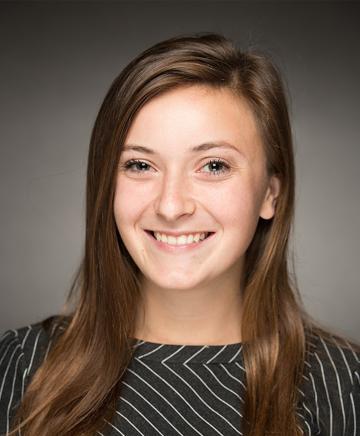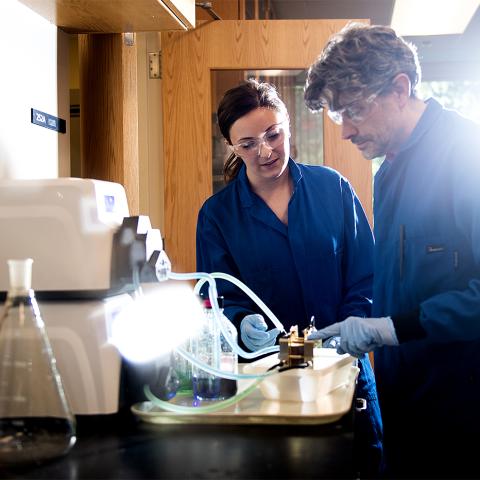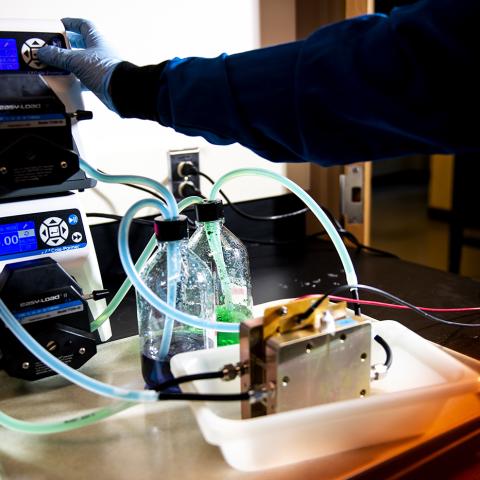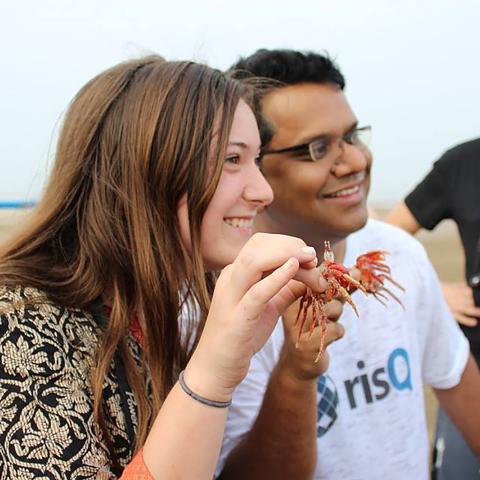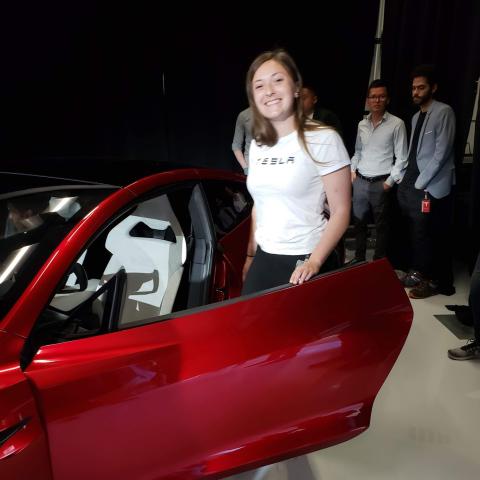High School
The Bromfield School, Harvard, MA, 2015Undergraduate Education
B.Sc. in Chemical Engineering from Northeastern University, 2020Profile
Sofia Catalina experienced early on both the promise held out by environmentalism, as well as its frustrations. While a sophomore in high school, she participated in an EF Tours trip to Costa Rica, where she attended a multi-day conference on ecology and conservation. Brimming with excitement and optimism upon her return home, she developed a project to reduce waste in the school cafeteria. The launch of the school’s Green Team soon followed, with programs like a used electronics drive and a walk-to-school challenge. Reality soon set in, however. “I was completely frustrated by my inability to make people care more than they did. I realized that it’s harder to convince people to choose the environment when it requires big sacrifices to your day-to-day life. Most people don’t choose the environment unless it’s convenient for them.”
As college approached, Sofia considered where she could lower the bar to making sound environmental choices. “Engineers struck me as the kind of people who made things of value. I knew I liked chemistry, so I applied to the Chemical Engineering program at Northeastern University.” Although she had taken a lot of hard science courses in high school, Sofia had less experience on the engineering side in topics like advanced physics or programming. “At first I felt a little bit like an impostor among a cohort of students who had taken a lot of physics and knew how to code.” It wasn’t long, however, until she found some great upper-classmen mentors and connected with other female engineers through the Society of Women Engineers and the University Scholars program.
It was during this time that Sofia’s focus on energy systems and batteries began to emerge. A four-week study abroad program called a “Dialogue of Civilizations” brought her to India to study climate change and policy. “I realized that the heart of everything that makes a society run is energy. And the more I learned about our existing energy system, the backbone of our society, the more I realized how absolutely crazy it is. Consumers’ electricity needs must be perfectly balanced with the output of generators. If not, you either wind up with wasted energy that needs to be funneled off in the form of heat, or an energy shortage that leaves customers in the dark.”
It was a natural step, then, to focus her work on battery science. By storing energy using electricity in chemical form, we can open up vastly more opportunities for use of renewable energy sources, particularly solar, which in the absence of storage capacity is only available when the sun shines. “My dream is to design a battery that is super efficient with a great lifetime that can be scaled to the grid so that we can start building solar arrays. We need materials that are widely available, inexpensive, and non-harmful to harvest, along with the right battery architecture.”
If this sounds like a tall order, Sofia isn’t intimidated. “There’s a lot to be depressed about when it comes to climate science, but when I think about my work, it doesn’t feel hopeless. The commitment I have made to myself and to the Thoreau Foundation community—and to the values we all hold in common—helps keep me motivated. I believe that my work on battery science will bring renewable energy solutions within reach for more people.”
